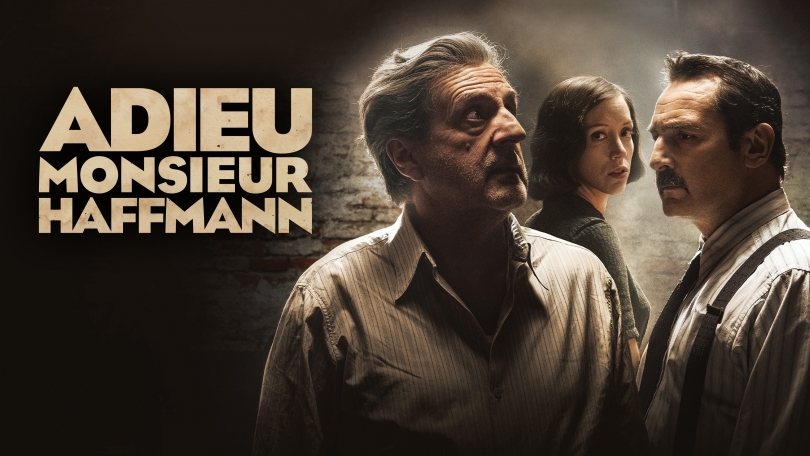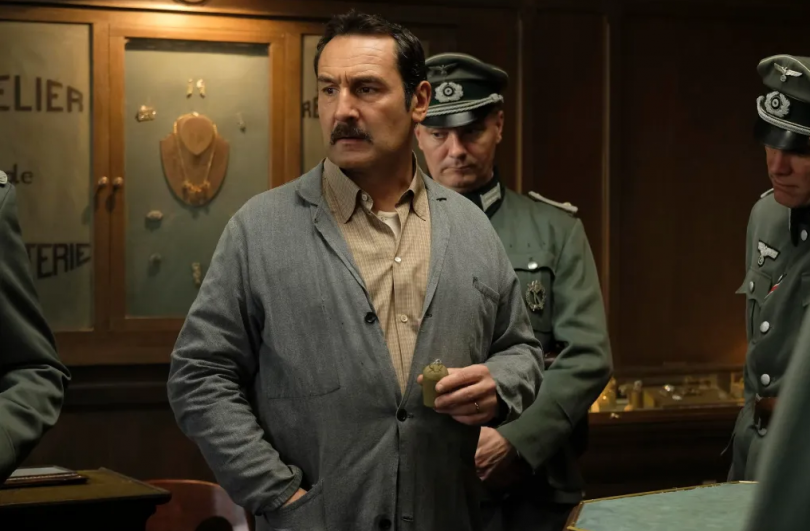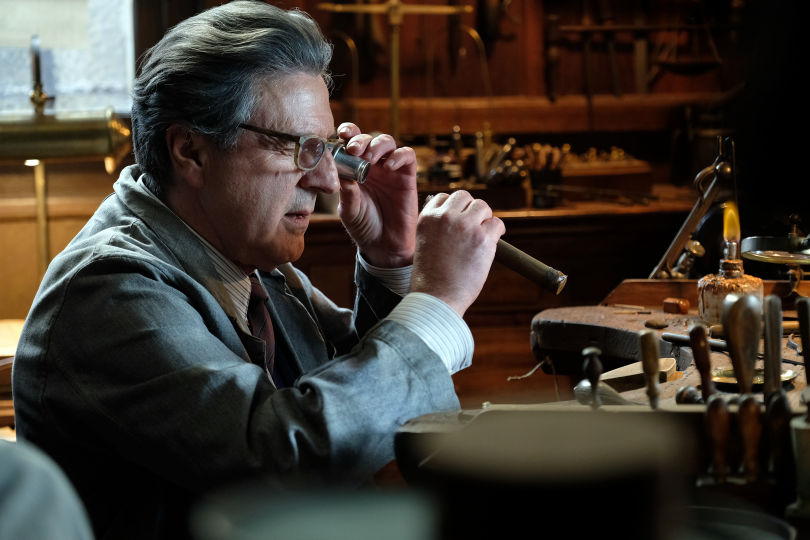|
|
||
|
Pro Tools
FILMFESTIVALS | 24/7 world wide coverageWelcome ! Enjoy the best of both worlds: Film & Festival News, exploring the best of the film festivals community. Launched in 1995, relentlessly connecting films to festivals, documenting and promoting festivals worldwide. Working on an upgrade soon. For collaboration, editorial contributions, or publicity, please send us an email here. User login |
Farewell, Mr. Haffmann (2021)
Farewell, Mr. Haffmann is a highly rated 2021 French feature film directed by Fred Cavaye based on the price winning stage play by Jean-Philippe Daguerre. The film opened North America in 2022 in and has been selected by more than 13 Jewish Film festivals thus far, distributed by the Santa Monica based Menemsha Films. Superbly photographed by Denis Rouden with a screenplay by Fred Cavaye and Sarah Kaminsky, the Haffmann story takes place in German occupied Paris from 1941 to late 1942. The film provides a realistic presentation of attempted survival of Jews under prosecution by occupiers with assistance of the French police helping to track them down, arrest and deport them. The story leaves no doubts about the active cooperation of French authorities and individuals in this process. After Adieu, Monsieur Haffmann was staged in 2016 it received numerous awards. Its initial stage design influenced Cavaye’s design of the feature. Thus, most of the action takes place in the home of Joseph Haffmann, serving as his jewelry shop and residence. There are only a few outside images of the neighborhood of his home, German and French street patrols, and sales visits to German officers. But the story evolves in the confined living quarters of Haffmann, his shop, and the cellar basement workshop.
In 1941, Haffmann notices in signs posted that all members of the Jewish communities have to register with their residence. He decides to save his wife and three young children by paying for their departure from Paris to Vichy, the free zone. He also sells his business to his assistant Francois Mercier with the understanding he would get it back once the occupation ends. Mercier's wife, Blanche, has reservations about the purchase of the shop, but moves with Mercier into the home of Haffmann. When the police look for Haffmann, Mercier advises them that he and his family left for places unknown after selling the shop to him. Haffmann, though able to pay for it, cannot secure help to leave Paris. His attempt to depart several days later fails and he must return to his home, living and hiding in the cellar workshop in the basement.
Cavaye delivers an outstanding complex adaption of the original play script and a masterful direction of the film. Mercier has taken over the shop, replacing Haffmann’s name with his, and selling the former owner’s superbly designed products while buying black market jewelry stolen from Jews, misleading Haffmann about the source. Mercier cultivates business with German officers. One officer, Captain Juenger, whose father is a jeweler, buys many jewels but suspects Mercier’s activities. Towards the end of the story, all parties have a chance encounter in the shop when Haffmann emerges from the workshop to give Mercier a broche he had repaired. Juenger looks into the cellar realizing that the jeweler Haffmann had been hiding there, but does not reveal his suspicion. Yet he tells Mercier that his luck may run out. Among the elements of the story is that Mercier cannot father a child after trying for several years. He persuades Blanche to be intimate with Haffmann. The three maintain, under tremendous stress, a surface family harmony eating together for some time. But the fear of being discovered hiding a Jew whose work Mercier needs for sales to German officers and their French girlfriends persists. Haffmann discovers that one of the pieces Mercier brings him is a golden medallion he had made for a customer and realizes that he had been working with precious stones, gold and silver stolen from Jews. There are also possible denunciations by neighbors of Mercier for his German deals. These complex conditions create a moral dilemma for the principal characters, though Mercier justifies his actions by the desire to save his family.
What elevates “Farewell, Mr. Haffmann” to an important outstanding historical film drama is the superb performance of the principal actors. Daniel Auteuil as Joseph Haffmann excels in all conflict and stress prone situations; Sara Girfauseau as Blanche Mercier growing close to Joseph Haffmann plays the subdued but persuasive role of a wife balancing contradictory dilemmas; Gilles Lellouche as Francois Mercier who could not join the army because of a disability also has to cope with his impotence issue and the knowledge that his work is inferior to that of Haffmann. Yet Mercier is convincing throughout the story despite his moral impairment. I was also impressed by the performance of Nikolai Kinski as the German commandant Juenger who buys Jewels from Mercier but apparently did not betray Haffmann. Claus Mueller 1 347 210 6759 filmexchange@gmail.com
06.02.2024 | Claus Mueller's blog Cat. : Adieu Monsieur Haffmann Farewell Mr. Haffmann FILM
|
LinksThe Bulletin Board > The Bulletin Board Blog Following News Interview with IFTA Chairman (AFM)
Interview with Cannes Marche du Film Director
Filmfestivals.com dailies live coverage from > Live from India
Useful links for the indies: > Big files transfer
+ SUBSCRIBE to the weekly Newsletter Deals+ Special offers and discounts from filmfestivals.com Selected fun offers
> Bonus Casino
About Claus MuellerThe EditorUser contributions |



























